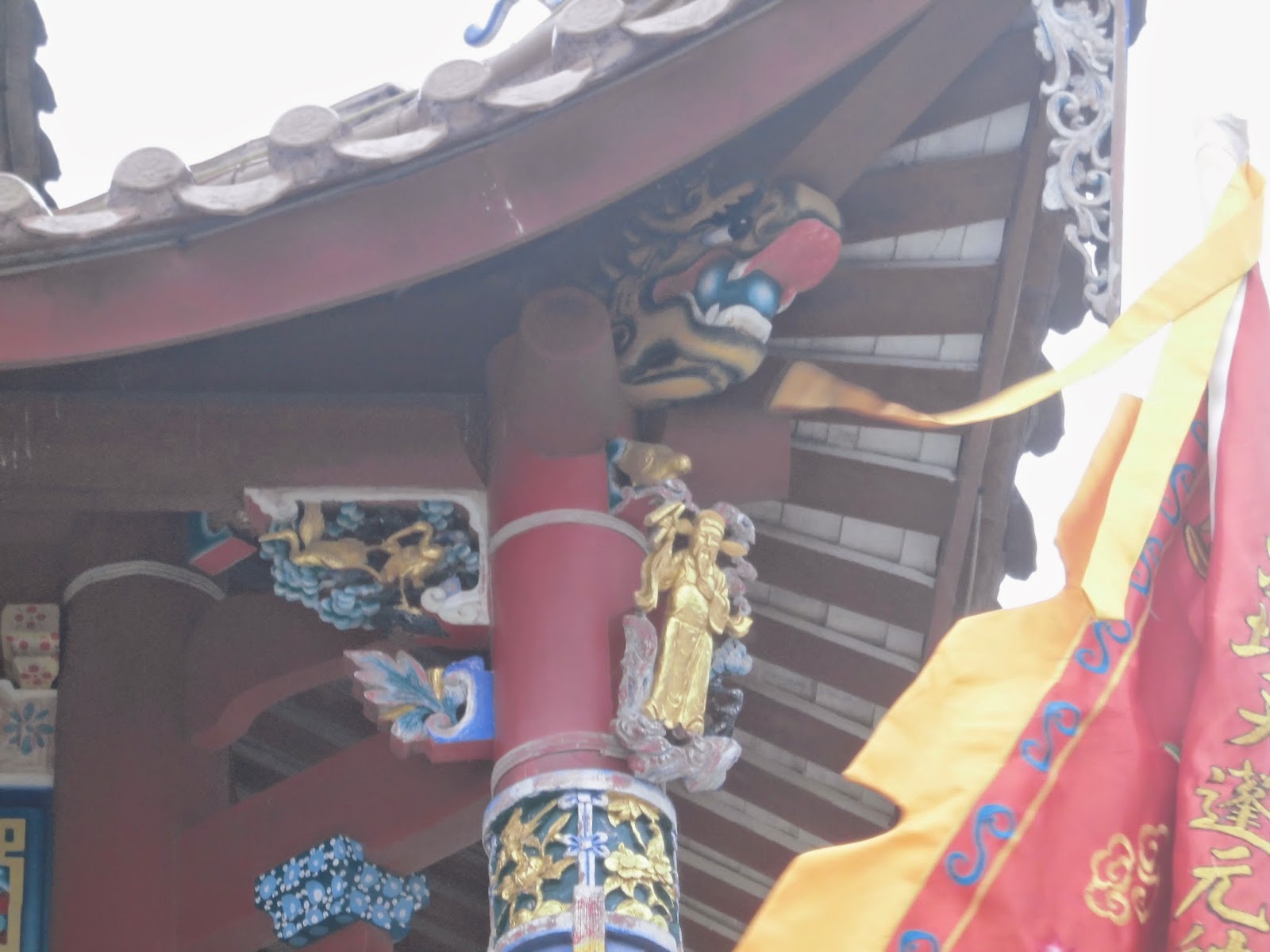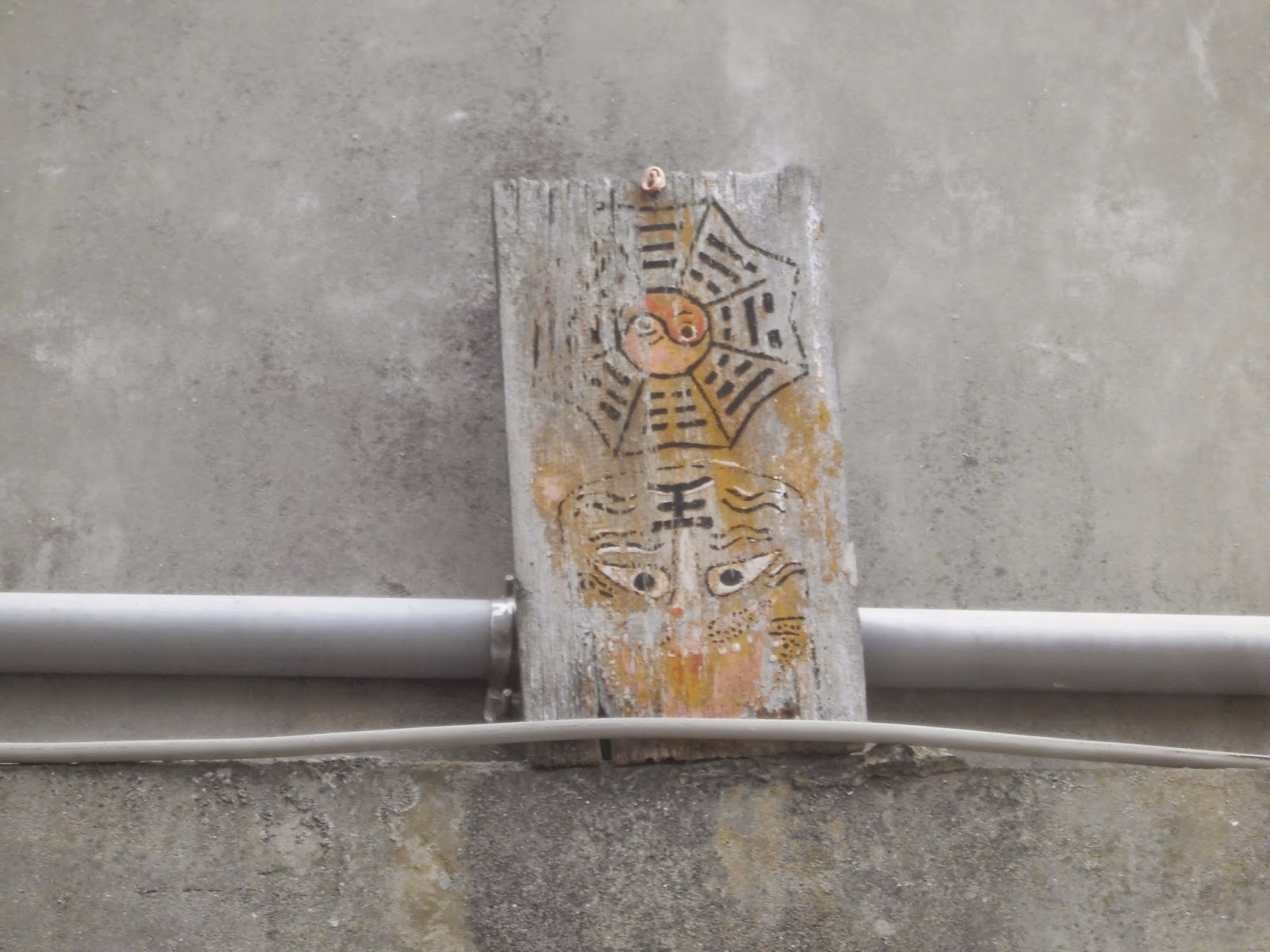莒光第二天,我去西莒。
During my second day in Juguang, I went to Xiju, the big island on the left side of the map. (If you remember, I was staying in Dongju, the big island on the right.)
二日目馬祖列島の西莒に行ってみた。
霧氣還很多。
It was foggy this day too.
この日も霧が多かった。
蔣像Chiang Kai-shek
蒋介石の銅像
用東犬燈塔來象徵莒光。
The Dongquan lighthouse on Dongju is a symbol of the islands, and it's been painted pretty large here.
東犬灯台が莒光のシンボルになっている。
隨便騎,就騎到田沃村。
I ended up in Tianwo Village, on the east side of the island.
目的決めずにバイクに乗ってみたら、この「田沃村」に着いた。島の東側にある。
鳥
Bird spotted
我沒想到田沃村這麼有趣。到了才知道。老家很多,很適合散步。
Tianwo is a really pretty village with a lot of old, traditional houses.
到着する前には全然知らなかったけど、この村は古い家がいっぱいあって、散歩して風景を見るのは本当に楽しかった。
元ビリヤード場
A former pool hall
I got talking with someone in the village, and I noticed that she didn't have the usual Matsu accent. She told me that she had actually been raised mostly in Taipei, and that she still lived and worked there. Her father had moved back to Tianwo recently upon retiring, and she was taking advantage of the four-day vacation to come and visit. Xiju, like many other small islands, is a hard place to make a living. As you probably noticed from the photos above, Tianwo was filled with abandoned houses.
ある人に話しかけてみたら、馬祖の訛りがないことに気づいて、なぜかと聞いたら小さい時に家族に台北に連れて行って、そちらで育ったと言った。お父さんが最近退職して馬祖に帰って来たから、今は連休があると西莒に来ることにしている。離島は経済面が大変で、西莒の人口がやっぱり減っているだろう。この田沃村には空き家がたくさんあった。
我跟一個人講一講話,發現他的發音沒有馬祖的口音。他說,為了教育家庭的發展,小時候他的父親帶全家去台北,所以他在台北長大,現在也在那裡工作。最近因為他的父親退休了所以搬回西莒來。這個人趁著放假回來這裡玩。看田沃村的樣子你就馬上知道,現在住的人變很少了。
A shopping arcade
A repurposed phone booth
去看海邊的廟
There was a small temple by the seaside.
海沿いの廟があった。
進不去。應該是軍基地。
There must be some military land beyond here.
廟の隣りに軍基地がある様だ。立ち入り禁止。
下次看西莒多一點。
We'll look more at Xiju next time as well.
今度も西莒のことを述べる。










































































No comments:
Post a Comment